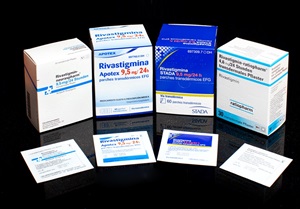SK Chemicals said it has obtained approval from the U.S. Food and Drug Administration for SID710, a patch-type medicine for Alzheimer’s disease, on Wednesday. SID710 is a generic copy of Novartis’ Exelon and the first to win the FDA nod among locally developed patch for dementia.

SID710 can be attached to the skin once a day, as dementia patients have difficulty remembering the time and the frequency of the medications or swallowing pills. It has the same effect as orally taken pills but has fewer side effects such as nausea, vomiting and inflammation. The new drug also has a less negative impact on the stomach and liver, the company said.
SID710 entered Europe in 2013, Australia in 2016, and Canada in 2018. In Europe, it was the first generic drug of Exelon to win the green light.
SK Chemicals has rolled out the product in 19 countries and clinched licensing and export agreements with 24 pharmaceutical companies. The firm is pushing for licensing in Brazil and Saudi Arabia, too.
In Korea, it has sold the drug under the brand name “Wondron Patch” since 2014.
With the FDA’s permit, SID710 became the sixth generic drug of Exelon to enter the U.S. market. SK Chemicals said it would start selling the patch through an American partner in the second half of next year.
With the population aging around the world, the global dementia treatment market is expanding. According to market researcher Datamonitor Healthcare, 2.3 million people have dementia this year, and the related treatment market is worth $3.3 billion a year.
On the back of the growing dementia treatment market and active overseas marketing, SID710 has become a leader among generic drugs with the same ingredient and drug shape in Europe, with a 50 percent market share.
SK Chemicals started a pharmaceutical business in 1987, released the nation’s first novel drug Sunpla, the third generation anticancer platinum complexes, in 1999, the first drug using natural ingredient Joins in 2001, and Mvix for erectile dysfunction in 2007.
The company later split its units to SK Bioscience and SK Plasma to commercialize the world’s first cell-culture quadrivalent flu vaccine SKYCellflu. The company also won approval for hemophilia A drug Afstyla in the U.S. and Europe.

